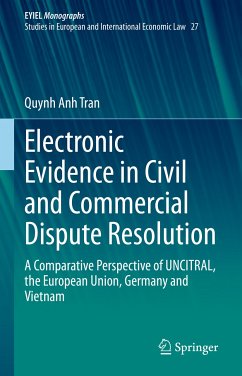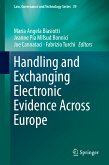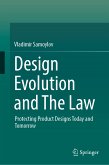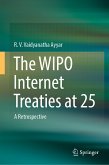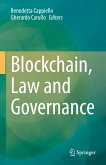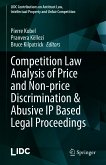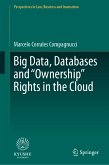This book focuses on the current provisions of UNCITRAL, the European Union, Germany and Vietnam concerning electronic evidence in civil and commercial dispute resolution. It analyses the notion and the basic aspects of evidence and electronic evidence and explores the process of finding electronic evidence. Further, it discusses how the effectiveness of finding electronic evidence can be reconciled with a respect for fundamental rights, in particular with personal privacy and personal data protection. The book subsequently addresses the authentication and admissibility of electronic evidence; the evaluation of electronic evidence and the burden of proof; and the challenges of using electronic evidence in civil and commercial dispute resolution. Finally, it puts forward proposals for promoting the use of electronic evidence in these contexts.
As the book focuses on the current texts of UNCITRAL and the civil procedure legislation of the European Union, Germany and Vietnam, it relies on a comparative method which deals with the most significant provisions of the above legislation.
Dieser Download kann aus rechtlichen Gründen nur mit Rechnungsadresse in A, B, BG, CY, CZ, D, DK, EW, E, FIN, F, GR, HR, H, IRL, I, LT, L, LR, M, NL, PL, P, R, S, SLO, SK ausgeliefert werden.
Hinweis: Dieser Artikel kann nur an eine deutsche Lieferadresse ausgeliefert werden.

